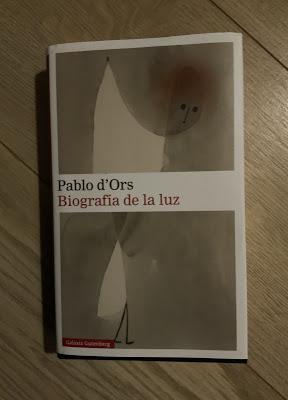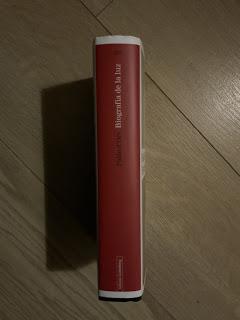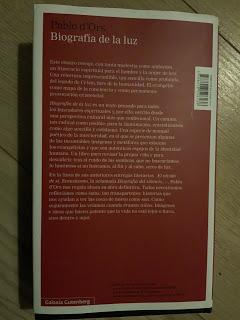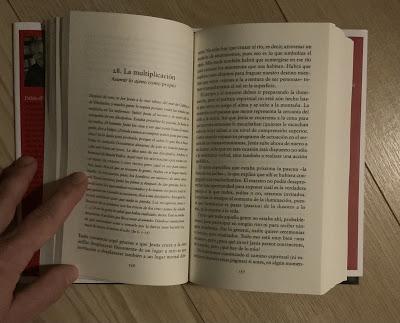
Pablo d’Ors es sacerdote y escritor. De los siete libros suyos que habré leído este es el que en mi opinión lleva más al extremo ambos carismas al regalarnos una obra maestra que se atreve a hacer algo que muy pocos han conseguido, acercarnos a los evangelios de una forma que nos toque el corazón y no nos haga salir huyendo.
Antes de empezar merece la pena leer el prólogo y el epílogo. En el primero nos dirán que lo escrito sigue una triple perspectiva: existencial, meditativa y artística. En el segundo nos confiesan que el texto es fruto de un periodo de desierto y enfermedad del que consigue salir airoso gracias al don que ha descubierto en sus muchos años de búsqueda y oración. Un don que revolotea sobre las aguas de cada capítulo.
Hay que ser audaz para plantear una catequesis en el mundo actual, hinchado de sí mismo, donde no parece haber espacio para las antiguas tradiciones. Y la originalidad parte de algo evidente, solo nos transforma lo que conseguimos sentir profundamente. El autor lo sabe por su propia vivencia y se nos ofrece como baso de barro para escanciarnos un vino excelente que no es de su propiedad. Él lo ha catado, como han hecho los místicos que el mundo ha conocido, y sabe bien de lo que es capaz.
Como médico sé de primera mano que no es fácil atravesar los desiertos de dificultad que inevitablemente nos toca acometer. En esos momentos la fe de cada cual es una potente aliada pero mucho más lo es la experiencia y la propia vivencia. Por eso merece la pena conocer y viajar, en este caso de nuevo a Palestina con unos protagonistas que aparentemente la historia ha alejado de nosotros pero que según leemos en el texto todos llevamos más dentro de lo que nos gustaría reconocer.
En un tiempo de sombras y de miedo como el nuestro viene bien que alguien rescate la luz y la convierta en biografía, narración de vida, abriéndonos otra oportunidad para entender.


Biography of light, Pablo d'Ors succeeds again.
Pablo d'Ors is a priest and a writer. Of the seven books of his that I have read, this is the one that in my opinion takes both charismas to the extreme by giving us a masterpiece that dares to do something that very few have managed to do, to bring us closer to the Gospels in a way that touches our hearts and does not make us run away.
Before beginning, it is worth reading the prologue and epilogue. In the first we are told that what is written follows a triple perspective: existential, meditative and artistic. In the second, they confess that the text is the fruit of a period of desert and illness from which he manages to emerge gracefully thanks to the gift he has discovered in his many years of searching and prayer. A gift that flutters over the waters of each chapter.
One has to be daring to propose a catechesis in today's world, bloated with itself, where there seems to be no room for the old traditions. And originality starts from something obvious: we are only transformed by what we manage to feel deeply. The author knows this from his own experience and offers himself to us as an earthenware bowl to pour us an excellent wine that is not his own. He has tasted it, as have the mystics the world has known, and knows well what it is capable of.
As a doctor, I am well aware that it is not easy to cross the deserts of difficulty that we inevitably have to face. At such times, one's faith is a powerful ally, but experience and one's own experience are even more so. That is why it is worth getting to know and travelling, in this case once again to Palestine, hand in hand with protagonists whom history has apparently distanced from us, but who, as we read in the text, we all carry more inside us than we would like to recognise.
In a time of shadows and fear like ours, it is good that someone rescues the light and turns it into a biography, a narration of life, opening up another opportunity for us to understand.

光之傳,巴勃羅·德·奧爾斯再次成功。
自動翻譯,對錯誤感到抱歉。
Pablo d'Ors是一位牧師兼作家。在我讀過的七本書中,我認為這是一種將兩種魅力都發揮到極致的方法,它給了我們一部傑作,敢於做很少有人能做的事,使我們更接近福音以一種觸動我們的心並且不會使我們逃跑的方式。
在開始之前,值得閱讀序言和結語。首先,我們被告知所寫的內容具有三重視角:存在性,冥想性和藝術性。在第二篇文章中,他們承認這段經文是一段荒漠和疾病時期的果實,由於他在多年的搜尋和祈禱中發現的天賦,他得以從中優雅地出現。飄揚在每一章的水面上的禮物。
在當今世界,人們不得不大膽提出自己的小題詞,而這似乎並沒有保留舊傳統的空間。獨創性從顯而易見的東西開始:我們只因我們能深刻感受到的東西而改變。作者從自己的經驗中知道這一點,並把自己作為陶器獻給我們,為我們倒出了他所不喜歡的優質葡萄酒。他品嚐了它,就像世界上的神秘主義者一樣,並且非常了解它的能力。
作為一名醫生,我深知要克服我們不可避免要面對的困難並非易事。在這樣的時候,一個人的信仰是一個強大的盟友,但是經驗和一個人自己的經驗更是如此。這就是為什麼值得認識和旅行,在這種情況下,再一次與巴勒斯坦人結識,他們與主角顯然歷史與我們相距遙遠,但正如我們在課文中所讀到的那樣,我們內心深處比我們想認識到。
在像我們這樣的陰影和恐懼的時代,有人搶救出來的光並將其變成傳記,生活敘事,為我們提供了另一個理解的機會,這是一個好習慣。
